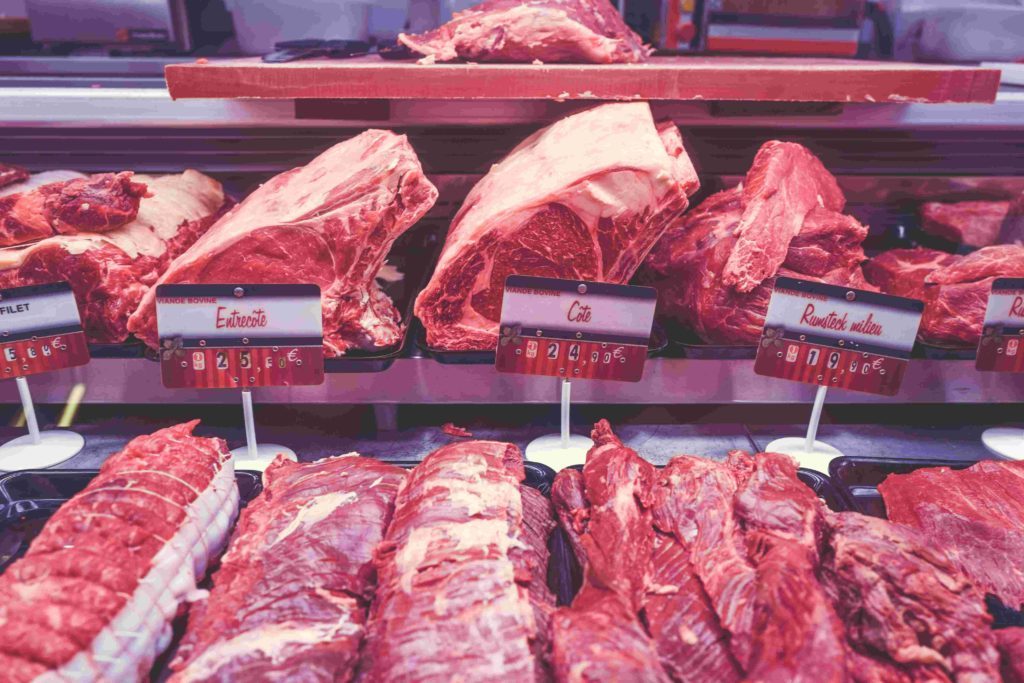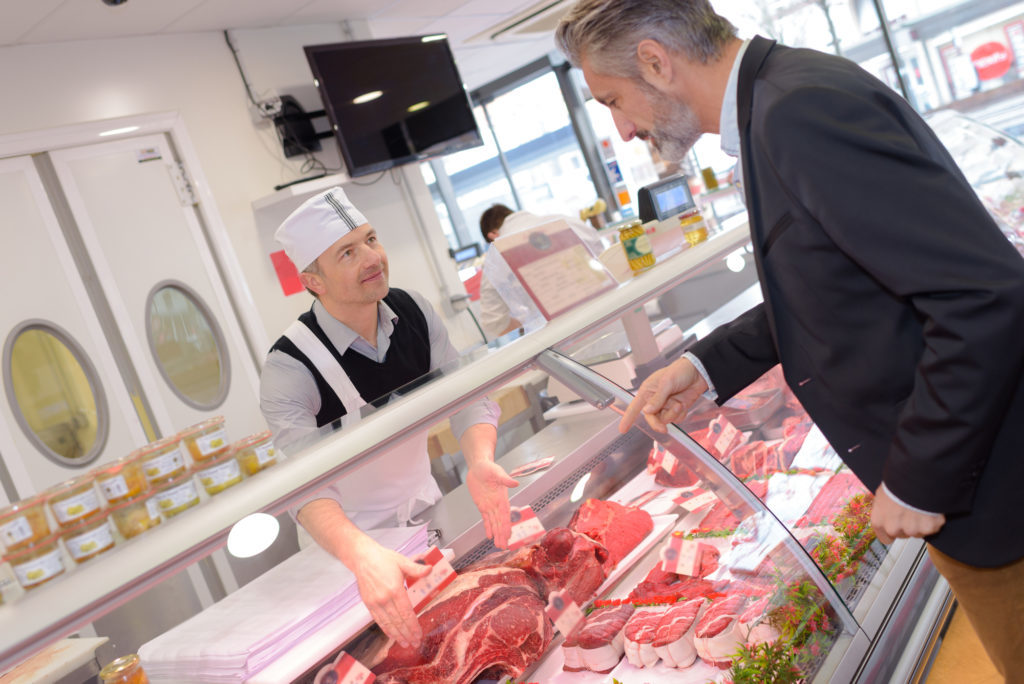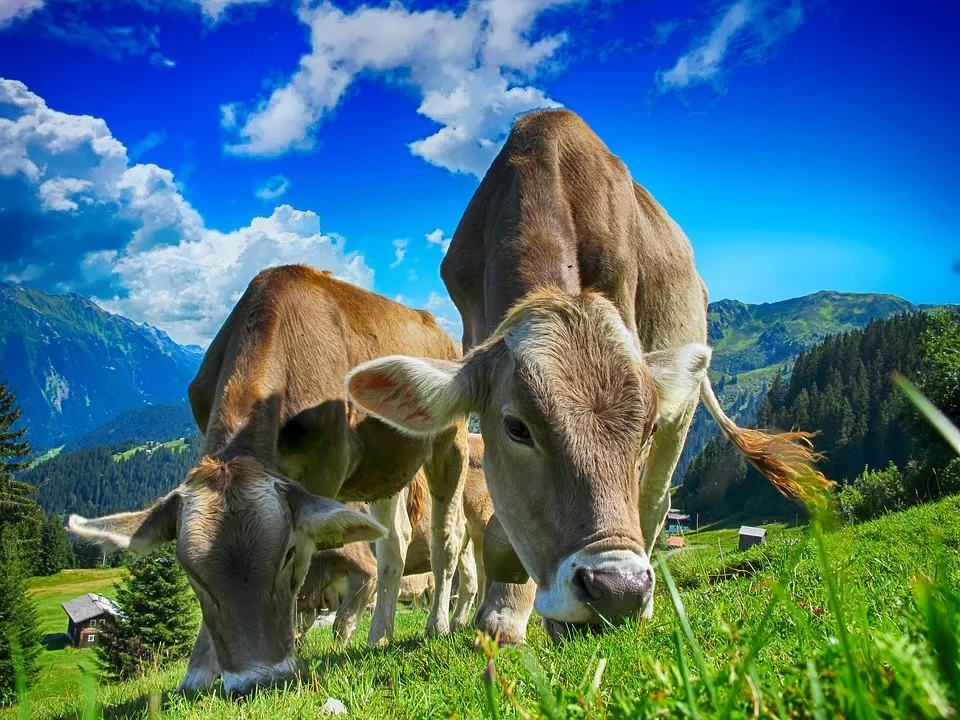From Anafric, we interviewed Dr. Abel Mariné (Barcelona, 1943), Emeritus Professor in Nutrition and Bromatology at the Faculty of Pharmacy and Food Sciences of the University of Barcelona, who give us an outline around in all the controversy on the consumption of meat, especially red, both in adulthood and in school periods.
We are human because we eat meat”, is this a wrong statement?
I would open it up, but in general terms, it is true, at least as part of the process of hominization. Meat has, from an evolutionary point of view, contributed to being what we are as an intelligent species of humankind. As Juan Luis Arsuaga, one of the directors of the research at the prehistoric of Atapuerca site, stated, “The human brain grew when we became carnivorous.”
Therefore, is the evolution of hominins to date the result of a significant part of meat proteins intake?
Exactly. If our ancestors had been exclusively vegetarian, the digestive work necessary to digest the amount of fiber that this represents, which on the other hand is necessary in the proper amount, would have required a long digestive system the needs of which would have hindered the development of our brain.
“Our diet has to be varied, balanced and sufficient. In quantity, vegetables must predominate vegetables and vegetables, fruit, legumes, cereals and derivatives (bread, pasta) and tubers (potatoes). Food of animal origin has a key role to facilitate its completeness, but in smaller quantities.”
The content and concentration of proteins of high biological value (among other nutrients such as iron, zinc, phosphorus and vitamins of group B, especially B12) of meats, and their digestibility even raw, facilitates an important contribution in the satisfaction of our nutritional needs , with a moderate physiological effort.
In fact, the same can be achieved with the proteins of eggs, fish or milk, since animal proteins are more complete than those of plant origin. It should also be noted that if we combine the proteins of legumes with those of cereals it gives a complete protein contribution. However, it involves a larger physiological assimilation effort.
“If our ancestors would had been solely vegetarian … it would have hindered the development of our brain.”
As a Professor Emeritus of Nutrition and Bromatology and food analyst in its composition, properties, technology and the effects on the organism, Which foods compose a balanced diet?
Achieving a balanced diet is possible by being vegetarian or vegan however it requires paying special attention to prevent deficit of iron, calcium, zinc and, above all, vitamin B12 not found in any vegetable. As a result, supplements administered foods following the advice of experts in nutrition and dietetics may be necessary, particularly in certain circumstances (pregnancy, lactation, childhood, adolescence).
All properly produced foods that follow the legislation are eligible for a balanced died. Obviously, the appropriate amounts might be different. In other words, a lot of vegetables and fruit, little sugary or low-fat products, but without exaggeration. Fresh products must be a first choice and, to some extent, of proximity.
“Our die has to be varied, balanced and adequate. Animal food origin has a key role in facilitating it but in smaller quantities than vegetables.”
Given all the misinformation generated around the consumption of red meat and its relationship with cancer development, do you think journalists should attend to nutrition classes?
Journalists can commit themselves and be experts in certain fields, ultimately what they need to focus on are the reliable sources of information. In relation to food industry, this means knowing how to distinguish science-based data from those that come from a sensitive emotional vision, myths or food prejudices.
What was your reaction to the report of the IARC (International Agency for Research on Cancer), which depends on the WHO (World Health Organization) on this issue published in 2015?
The release of the information and the headlines by the media was more shocking than the same data in the report. We already know that the excess of meats and derivatives increases the risk of cancer.
The news reported by IARC, linked to the WHO, in relation to the consumption of red meat and processed meats increasing cancer pathologies, especially colon type, triggered an information boom and alarm among both producers and consumers.

The meats are classified according to their colour, and not always in the right way: in white (poultry, rabbit), pink (pig, which some consider to be almost white, but others red) and red or red (veal, ox, horse).
Then, how relevant is this report?
When it comes to evaluation it is necessary to distinguish three different groups of meats and derivatives: fresh (steak, rib), processed (hamburger, meatball) and meat-base processed, with other ingredients, such as salt and authorized additives, made by fermentation, drying or smoked (sausages, bacon).
“The meats are classified according to their colour, and not always in the right way: in white (poultry, rabbit), pink (pig, which some consider to be almost white, but others red) and red or red (veal, ox, horse).”
The mentioned report concludes that there is enough evidence to consider processed meat as carcinogenic, and weak evidence regarding red ones. The headlines of the news simplified the results and generated the ensuing uproar. The reactions have been diverse, from those who interpret that you cannot eat even a sandwich of sausage and many few steaks, to those who consider it all an exaggeration, and conclude that you do not have to pay attention. It is neither one thing nor the other.
Communication has been exaggerated, then?
The IARC has evaluated many studies on the correlation between the diet of many people and the incidence of cancer, and has observed that this relationship is clear, but not very intense, in processed products, and that it is more tenuous in red meat, but has not considered sufficient amounts and frequency of intake. A basic principle of toxicology is that the dose, and its repetition, makes the poison. In addition, WHO did not give consumer advice, but merely communicated about what has been observed. The entire report took its time to come to light.
The problem has been more about the treatment of the communication of results than of their true meaning. In fact, the nature of this information highlights on isolated toxicological data, which are true under certain conditions, than on the nutritional consideration of the proportions of red and processed meats in the whole diet.
“The named report did not “prohibited” meat but recommended moderation in its consumption, and this is how it was understood by health agencies and authorities.”
Red meats owe their colour to iron compounds that make them the best source of this essential mineral in food, to the point that it is not easy to ingest and assimilate easily if there is a lack of meats in our diet. The same report reveals that moderate amounts of red meat, and more moderate than processed, do not involve an increased risk of cancer development, especially if we do not abuse smoked, roasted and barbecues meals.
As for the processed ones, the salt and, above all, the nitrifying salts that are added authoritatively to avoid botulism – a serious intoxication – can constitute another risk factor, and this would be so if a high and continuous consumption were given. We must keep in mind that risk factor does not mean the same as direct cause. Therefore, “tagging” processed meats as tobacco or asbestos is a huge mistake.

Eating fresh meats, preferably lean, two to three times a week will not only harm us but will also provide us with nutrients (quality proteins, vitamins of group B, iron, phosphorus and zinc.
We think so too, but it seems that there is a significant confrontation, isn’t it?
Tobacco is always harmful and red and processed meats are only harmful if excessive consumption occurs, from my point of view, it would already mean an unbalanced diet, because it would displace other foods, such as vegetables and fruits that have protective effects against cancer.
Plainly said, eating a sausage sandwich every day is not convenient, but doing it a couple of times a week does not represent a big deal, always within a context of a varied diet with plenty of vegetables and fruit. Therefore, it is still true that eating fresh meats, preferably lean or sausages from two to three times a week will not only cause any harm but will provide very adequate nutrients (quality proteins, vitamins of group B, iron, phosphorus and zinc).
As the prestigious cancer researcher Joan Massagué stated, sometimes the headline makes it difficult for us to understand the complexity of things. As for meats and derivatives, we must obtain more quality rather than quantity, and we already knew this before the report.
“Tobacco is always harmful and red and processed meats are only harmful if excessive consumption occurs, which, by itself, would already mean an unbalanced diet, because it would displace other foods, such as vegetables and fruits that have protective effects against cancer.”
In the “Dossier of relevant information to develop a pedagogical task in relation to the link of consumption of red and processed meat with cancer” by the Government of Catalonia, there is a good example of how the statistical data should be presented: “In the reviewed report, experts concluded the risk of colorectal cancer increases by 18% for every 50 grams of processed meat consumed per day. If the possibility that any person suffers from colorectal cancer is 3%, with a high consumption of processed meat, there may be a relative 18% increase in risk over this 3%. This means that the risk would go from 3% to 3.54%.”
Extremes are bad … everybody knows it. If we would eat a lot of fruit, vegetables and vegetables … what will we be lacking?
It is advisable to eat enough vegetables and whole fruit, including legumes, cereals its derivatives and potatoes. We will not probably eat too much vegetables or fruits as they are not as appealing as fats or sugar. High intake of this kind would represent a close vegetarian diet. As we have already stated, these diets are possible, but they ask for accurate care and knowledge in the selection, particularly in a vegan diet base.
What amounts of fresh or processed meat would we most consume in order to avoid cancer development?
There is not a total agreement on the advisable amounts and the meat consumption limit. With a consistent basis it can be indicated, always within the framework of a varied, balanced and appropriate diet, that reasonable and healthy consumption patterns would not exceed a daily average of 40 to 70 grams per day of meats and its derivatives, preferably lean. That is a maximum of 400 to 500 grams per week, which can include up to 20 to 30 grams per day of processed. A maximum of 200 to 300 grams per week of red meat is recommended.
One More relevant aspect is how to cook the meat. When meat or bread is roasted and overcooked, very dark or even black tones appear. This bad practice might lead to carcinogenic elements like those within tabaco, smoke and pollution. Obviously, the toxicity depends on the dose and its repetition, but it is not advisable to consume grilled or barbecue meats with burned appearance.
“With fairly consistent fundaments, it can be indicated, always within the context of a varied, balanced and appropriate diet, that a reasonable and healthy consumption patterns would not exceed a daily average of 40 to 70 grams per day of meats and derivatives, preferably lean”
I an article published in 2009, you stated “Eating too much meat can increase the risk of certain cancers development, but there is no evidence of direct effect of this consumption or lack of other essential diet ingredients such as vegetables and fruits that contribute to offset this danger. Unbalanced diets carry problems and balanced ones avoid risks.” Do you still think the same?
Partially yes because it is a general formulation of what must be considered in a diet. It would appropriate if the usual side of a meat dish would be vegetable leaving fries for more occasional cases. If we have started the meal with a salad and we end it with fruit, fries might be included too.
 Animal welfare is essential for good, tasty and healthy meat.
Animal welfare is essential for good, tasty and healthy meat.
According to your analyse, is the quality of meat produced in Spain correct?
Meat produced in Spain follow national and European Union rigorous rules. Most producers do well, and the agricultural and sanitary authorities carry out the appropriate controls. However, any human activity always involves the possibility of some error, fraud or accident, that is the exception and not the rule. Therefore, we can eat meat and derivatives with security and confidence.
Quality meat means adequate animal welfare, is that correct?
This is a key aspect, for the goodwill of the animal and quality of the product our production system takes good care of it in general terms. Like in the previous question, there may always be some exceptional inadmissible situations of animal abuse.
Any final consideration?
In short, meat like any other food, is not essential but provide good nutrition and enriched a gastronomic diversity. Those who like meat can consume it moderately without any fear.

















